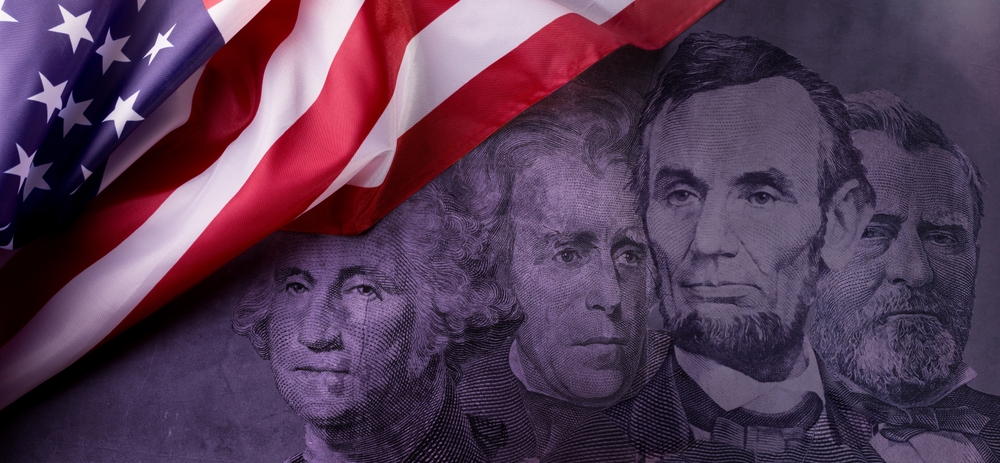
As the nation pauses to commemorate Presidents Day, the impact of these leaders on American history remains a topic of immense fascination. From the visionary leadership of the Founding Fathers to the modern-day challenges faced by presidents, the evolution of the highest office in the land sparks intrigue and reflection.
But what exactly defines a remarkable president? The criteria vary widely, encompassing factors like crisis management skills, legislative achievements, and public persona. Some presidents are revered for their eloquence in times of national turmoil, while others are celebrated for their strategic decision-making abilities.
Whether it’s the charisma of a Kennedy or the resilience of a Lincoln, the discussion around what makes a truly exceptional president is a captivating one.
History of Presidents Day
Originating in the 1880s, Presidents Day was initially established to commemorate George Washington’s birthday as a federal holiday. It began as a day to honor the first U.S. president and was celebrated on Washington’s actual birthday of February 22nd. However, in 1968, the holiday was expanded to also recognize Abraham Lincoln’s birthday and was moved to the third Monday in February to create a long weekend for American workers. Despite some suggestions to rename the holiday, Congress decided to keep it as Presidents Day, a day to celebrate the contributions of all U.S. presidents throughout history.
Throughout the years, Presidents Day has evolved into more than just a celebration of Washington and Lincoln. It has become a day to reflect on the leadership and impact of all presidents on the nation. Public ceremonies are held both in Washington, D.C. and across the country to mark the holiday and pay tribute to the leaders who’ve shaped American history.
Key Takeaways
- Presidents Day celebrates George Washington and Abraham Lincoln’s legacies.
- It honors all U.S. presidents and their contributions to American history.
- Presidents Day is a federal holiday observed on the third Monday of February.
- The day includes public ceremonies and events nationwide to commemorate the presidents.
Significance of the Holiday
The significance of Presidents Day lies in its recognition of the diverse contributions made by all U.S. presidents throughout history. This federal holiday, celebrated on the third Monday of February, honors the legacies of past presidents, particularly George Washington and Abraham Lincoln.
By commemorating their lives and leadership, Presidents Day symbolizes a broader acknowledgment of the impact that all presidents have had on shaping American history. It serves as a time for reflection on the dedication and service of these leaders and their enduring influence on the nation.
Public ceremonies and events held in Washington, D.C., and across the country further emphasize the importance of this holiday in uniting Americans in appreciation of their leaders. Presidents Day stands as a testament to the ongoing legacy of leadership in the United States and underscores the values of democracy, progress, and national unity that these presidents have embodied.
Celebrations Across the US
As Americans prepare to honor Presidents Day, celebrations across the U.S. reflect the enduring legacy of past presidents and their impact on the nation’s history. On this federal holiday, many states commemorate the birthdays of George Washington and Abraham Lincoln with various events and activities. Public ceremonies are held in Washington, D.C., and across the country to pay tribute to these influential leaders.
The third Monday of February marks Presidents Day, leading to closures in schools, businesses, and federal offices. Some states also observe Lincoln’s birthday as a separate legal holiday, adding to the significance of the occasion. Retailers often take advantage of the holiday by offering sales and promotions, making it a popular shopping day for many Americans.
Notable US Presidents
Notable US Presidents have left a lasting impact on American history through their leadership and decisions. From George Washington, the first President of the United States, who set many precedents still followed today, to Abraham Lincoln, who guided the nation through the Civil War and issued the Emancipation Proclamation, these leaders have shaped the course of the country.
Theodore Roosevelt, known for his progressive policies and conservation efforts, expanded the role of the presidency. Franklin D. Roosevelt’s New Deal programs helped the nation recover from the Great Depression, while Ronald Reagan’s economic policies left a significant mark on modern conservatism. Additionally, the recent presidency of Barack Obama marked a historic moment as the first African American President of the United States.
These notable presidents are remembered for their contributions to American society, politics, and culture, and their legacies continue to influence the nation today.
Impact of Presidential Legacies
Presidential legacies profoundly impact American society, shaping policies and influencing future generations. The decisions made by presidents during their time in office can have far-reaching consequences that extend well beyond their terms. For example, President Franklin D. Roosevelt’s New Deal policies helped guide the country out of the Great Depression and set the stage for modern social welfare programs. President Ronald Reagan’s focus on deregulation and tax cuts influenced economic policies for years to come. Additionally, President Barack Obama’s healthcare reform, known as the Affordable Care Act, reshaped the healthcare landscape in the United States.
Moreover, presidential legacies can also impact social issues and cultural norms. President Lyndon B. Johnson’s Civil Rights Act of 1964 and Voting Rights Act of 1965 were instrumental in advancing civil rights for African Americans. President Richard Nixon’s resignation due to the Watergate scandal highlighted the importance of accountability and transparency in government. Overall, presidential legacies serve as a significant lens through which to understand the evolution of American society and politics.
Frequently Asked Questions
How Do Schools Typically Incorporate Presidents Day Into Their Curriculum?
Schools typically incorporate Presidents Day into their curriculum by teaching about George Washington and Abraham Lincoln’s impact on U.S. history. Lessons may focus on their leadership, contributions, and the significance of Presidents Day as a federal holiday.
Are There Any Lesser-Known Facts About George Washington or Abraham Lincoln That Are Often Overlooked on Presidents Day?
Sure! When looking deeper at George Washington and Abraham Lincoln, one may overlook Washington’s dental troubles, using hippopotamus ivory. Lincoln, known for honesty, was a wrestler and licensed bartender. These intriguing details add depth to their legacies.
What Is the Most Unique or Unusual Way a State or City Celebrates Presidents Day in the U.S.?
In various states and cities, Presidents Day is celebrated uniquely. From themed parades to educational programs, each place adds its twist, such as historical reenactments, presidential trivia contests, or community service projects honoring past leaders.
Conclusion
In conclusion, Presidents Day is a cherished holiday that honors the leadership and legacies of U.S. presidents.
Celebrated with retail promotions and public ceremonies, it serves as a time to reflect on the contributions of past leaders.
The history and impact of these individuals continue to shape the nation, making Presidents Day a meaningful occasion for Americans to come together in appreciation of their country’s rich heritage.










